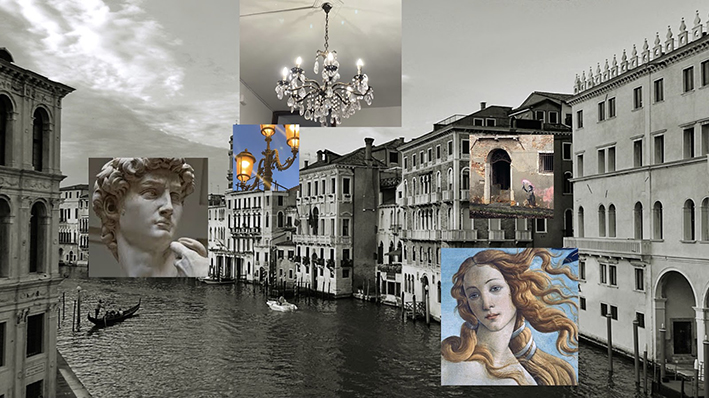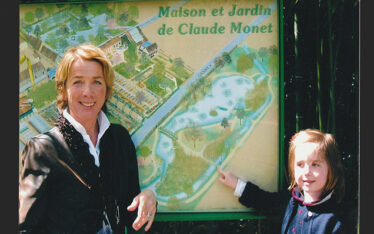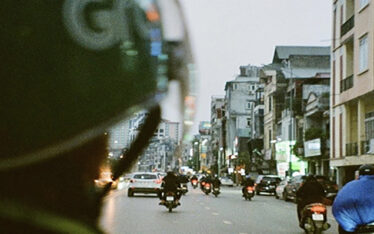
Courtesy of Elisa Vovos
As a semi-Parisian, meaning I somewhat identify with a sense of Parisianisme, I’ve always felt quite amused when a foreigner would say, in the middle of a heated conversation so typical of Erasmus aperitifs, that the “French are as rude as they come”.
Most of all, no one could “stand these very, very arrogant Parisians” often punctuated with a “my god!” to underline the trauma of one’s family day trip in Paris, 11 years ago.
I often tend to offer a series of well-developed arguments, touting Parisian pride and snobbishness. Not as to justify either, but rather to turn in as a trait of an elegantly written character. Part of the insecurity of working Parisians is the suffering of romantic loneliness one can know in such a town.
___________________________
Because Venetians are artists, they seldom find themselves being understood. Of course, this type of bullshitting with a capital B works only half of the time. I usually end the conversation by ordering another drink with the accuser, by fear of them projecting on me all their hatred and trauma from the baguette-eating people I grew up with.
But things have changed. Why? Well, because I moved to Venice, Venise, Venezia, the eternally romantic city, the colorful palazzos on the Grand Canal, the singing gondoliers, the Italian restaurants with the welcoming waiters, the promenades on the Zattere their boardwalk, the Churches, the Art.
Also, the impossibly crowded streets of Saturday and Sunday. The tourists eating gelato. The very aggressive seagulls.
Google Maps lead you toward a street running into the canal. There is no bridge, no boat, no access to the other side as if Google Maps just expects you to swim to the next shore in this sewage-filled water. There are, however, the very expensive restaurants. And, most of all, the adversary to Parisians’ sense of superiority: Venetian eccentricity.
I am not speaking here of the eccentricity of the punk London crowd, the dyed hair, piercing wearers, high-boot walkers, costume indulgent people – how I always imagined eccentricity personified.
The eccentricity of Venetian people is more subtle. As one friend back home was putting it, the Venetian are beautiful and cruel at the same time, beautifully cruel and cruelly beautiful – let me explain this lyricism.
_________________________
My subjective eye of course cannot catch up with the variety and variations of fashions. All I can talk about is my own sensibility, my own observation of the cruel and beautiful people I am about to describe.
I am referring to a particular personage. Allow me a French word for the theatrically of my description. A member of Venetian youth –a student or a bit older, whose main signal is their distinctive walk– rapid and slow at the same time, a walk that knows its way in Venetian streets. Never a foot that slips on the stone of bridge stairs, never a hand that catches a railing to stabilize oneself.
It is a walk through everything of elegance. One flies along with the flapping of a winged black coat. I swear black coats are everywhere. Must be a rule I missed out on. Often their hands hold a cigarette. If not, then a bottle of wine, a spritz or the utmost Venetian accessoire, a leash attached to a matching collar worn by their dog.
These dogs are all extremely good looking –a term that causes my roommate to raise her eyebrows. She, being the dog-lover she is, in no uncertain terms, condemns my “inappropriate anthropomorphic” lexicon.
But these dogs, these accessories to the perfect Venetian eccentric, are well groomed, walk with their head held high, slowly, in sync with their owner. No master but simply a runway partner. Makes me think these dogs have a mind of their own. They project a total lack of need for anyone to care for them.
It can only accentuate the effortlessness of the Venetian eccentric, who lives constantly in an Italian Renaissance painting. They walk pass a Botticelli, non-disturbing and undisturbed, their skin matching that of the Venus.
__________________________
They casually glance at their phones, pause on a busy street and unknowingly match the pause of Michelangelo’s David. Girls with their blasphemous blood-colored lips and devout eyes. Boys with penetrating looks and feminine silhouettes.
I often imagine them as reformed young nuns and priests in all so religious Italy. They walk out of convents and monasteries with the most daring of smirks on their face and arrive at an osteria that vaguely resembles the set of a Paolo Sorrentino movie (The Great Beauty, Youth, The Hand of God…)
It is the effortlessness of their aesthetic, the scandalous knowledge they seem to hold behind their angelic faces that make it so cruel. As if they had an innate sense of elegance or style – born, maybe, with Bukowski’s words in mind “style is the answer to everything”.
I am not aware of the eccentric Venetian’s knowledge of how they project themselves to the foreign eye. I do know, it affects me. I know I am drawn in, wanting to observe more of them, talk to them. I curiously find myself as shy as the 13-year-old girl I used to be, incapable of talking to my now-not-so-relevant crush.
I realize, in my own conceived imagination of the Venetian eccentric, maybe, I have conducted an exercise of justification. Naming their coldness as an immense elegance elevates this simple character trait – same as I have with the Parisians.
Maybe because, like the Erasmus student who complains to me about the rudeness of my compatriots, I too have been hurt by them.
__________________________
And, yes, in this new city I am discovering, Venetians are both beautiful and cruel, which hurts because there is an existent, unavoidable desire to be part of this community. A need to be desired by them, to match their walk and their talk, the redness of their lips.
And so, I romanticize them. But with no sadness. Because someday, somewhere, someone will see my effortless romanticization of things, both cruel and beautiful, and say: “Well, this, this right there, is style.”
About the Article
An examination of how best to interpret Venetian introspection.



